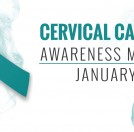How Stress Can Kill Us
For most of us, stress is the frenzied pace of daily activities. For some, stress is what they feel during times of loss, illness, or conflict. People react to stress differently. Some can take it lightly, while other people cannot carry the burden.
And even though highly developed countries such as the US are always on top of making standards of living better, many people are still affected by health problems such as cardiovascular disease, which is often triggered by stress. According to the Centers for Disease Control and Prevention, a total of 596,577 Americans died of heart diseases in 2011.

(Photo courtesy of troll.me)
Medical researchers suspect stress as a risk factor, but high levels of stress can aggravate other risk factors such as hypertension and high cholesterol. If you are experiencing stress, for example, your blood pressure may go up, you tend to consume sugary and starchy food and drinks, you may not have the motivation to exercise, and you may even smoke a lot.
Stress is a leading risk factor for heart disease because chronic stress makes the body vulnerable to unhealthy raised levels of stress hormones like cortisol and adrenaline.
Is Your Profession High-Risk to Stress?
A study conducted by Brigham and Women’s Hospital (Boston, MA) suggests that women in high-stress jobs may be risking their health by merely showing up at work. The researchers followed 22,000 women working in different careers over 10 years. They have discovered that females in high-stress professions have 40% occurrences of cardiovascular traumas and 70% chance of heart attack compared to women working with less stressful environment.
Business Insider reports the following occupations as the Top 10 stressful jobs in America:
- Police First Line Supervisors
- Mental Health Counselors
- Education Administrators
- Broadcast News Analysts
- Nurse Anesthetists
- Phlebotomy Technicians
- Pilots
- Air Traffic Controllers
- Surgeons
- Obstetricians and Gynecologists
- Dancers
- Psychiatric Technicians
- Police, Fire, and Ambulance Dispatchers
- Psychiatric Aides

Most professions in the healthcare industry are stressful according to a report from the Business Insider (Photo from dreamstime.com)
Consequences of Chronic Stress
Too much stress in your life could lead to major health problems:
1. Sleep Problems and Fatigue
Stress can result to hyper thinking, and when a person thinks too much, sleeping becomes a problem. If you cannot sleep peacefully at night, you will have less energy when you wake up and go to work.
2. Infections
Stress can lead to weakened immune system. The body’s production of white blood cells will be affected causing weak defenses to fight infections. People who are experiencing stress are usually sick.
3. Hair Loss
Chronic stress can cause the body to produce dihydrotestosterone (DHT), which is a type of hormone that could cause hair loss. Higher levels of DHT in the body can also cause other minor health issues such as over fatigue and appetite loss.
4. Stomach Cramps and Ulcer
When you are experiencing stress, your digestive system becomes less efficient, which causes stomach cramps and even ulcers.
How to Handle Stress
According to Dr. Jamie Long of Psychology Today, you can easily combat the effects of stress by following these five practical and easy tips:
1. Remember: This Too Shall Pass
Even though stress can make you feel uncomfortable, the negative feelings are not permanent and will eventually pass away.

(Photo courtesy of quoteswave.com)
2. Learn How to Self-Soothe
You can learn to soothe yourself down to handle stress through certain techniques such as diaphragmatic breathing, positive self-talk, and muscle relaxation.
3. Check Your Diet
Be sure to cut down on your intake of caffeine and alcohol as these can contribute to triggering stress factors.
4. Get Moving
Regular exercise and increasing your mobility can effectively reduce stress, brighten up your mood, boost your self-esteem, and increase energy levels.
5. Get More Sleep
Research from the University of Pennsylvania shows that losing even a few hours of quality sleep increases stress, fatigue, sadness, and anxiety.







